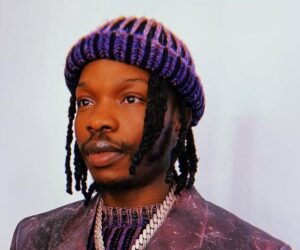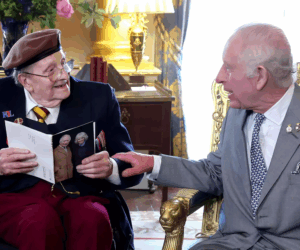In a country where the justice system has a questionable reputation, prisons overflowing with the innocent, underage, and awaiting-trial inmates, President Bola Ahmed Tinubu’s recent pardon list has sparked anger and disbelief nationwide.
The President, acting on recommendations of the Presidential Advisory Committee on the Prerogative of Mercy, approved pardon and clemency for 175 prisoners and ex-convicts, including drug traffickers, corrupt politicians, and convicted killers.
While the Presidency insists the gesture aims to “correct historical injustices and promote national healing,” many Nigerians say it feels more like justice turned on its head. The beneficiaries are categorised into the following:
We compare key features such as price, design, durability, displays, performance, battery life, cameras, and AI software.
#FeaturedPost
We tested the Itel BudsNeo 3 for two months. Here’s our honest review of its 100-hour battery life, sound, comfort, and whether it’s worth ₦13,000 in Nigeria.
The pardon list also includes some posthumous pardons for colonial-era figures and people executed under former military regimes, plus the Ogoni Nine, among others.
Many of these pardoned individuals committed serious crimes like murder, trafficking in hard drugs, major corruption cases, or crimes that led to death sentences. Nigerians believe that the pardons undermine deterrence, deflate faith in the judicial process, and reopen wounds for victims’ families.
Four Names & Their Crimes: The Shocking Cases
Below are detailed stories of four individuals from the pardon list.
1. Nweke Chibueze Francis
On May 14, 2009, Nweke Chibueze Francis was arrested at Lagos’ Murtala Muhammed International Airport during outward clearance for a flight to Holland. Customs officials found 1.416 kilograms of cocaine hidden in his luggage. He was convicted under Section 11(b) of the NDLEA Act and sentenced to life imprisonment, a punishment fitting the gravity of international drug exportation. Now, he is free.
YOU MIGHT LIKE: Bùjẹ̀búdánù: The story of Nigeria’s most notorious drug baroness
What makes his case especially controversial is the President’s own historic drug-related allegations, accusations from a decades-old U.S. civil forfeiture case that have long shadowed Tinubu’s career (though he has never been criminally convicted). For critics, pardoning a cocaine trafficker under a president with a similar stain is a moral hypocrisy.
Dino Melaye on X described the action as “unprecedented in history,” claiming that no other government in the world had ever granted such a large-scale pardon to convicted drug offenders. He wrote:
Pardon granted 70 drug lords by President Tinubu is unprecedented in history. Checks have revealed that it has never happened in the history of the world. My advice to the President is to scrap the NDLEA. His action has made a beautiful nonsensical of all the efforts of the agency since inception.
2. Maryam Sanda
&format=jpeg)
Maryam Sanda became the face of one of Nigeria’s most sensational domestic violence cases. In November 2017, she stabbed her husband, Bilyaminu Bello, to death during a quarrel at their Abuja home. She was arrested, tried, and in January 2020, sentenced to death by hanging. She spent over six years and eight months in Suleja Medium Security Custodial Centre, awaiting execution until President Tinubu granted her clemency.
ALSO READ: Maryam Sanda: Don’t Let Anyone Take Your Life, Actress Kemi Afolabi says
The family of the victim, Bello, has strongly condemned the pardon. They say it reopens emotional wounds, mocks justice, and undermines the value of holding someone fully accountable after a court of law has affirmed guilt through all appeals.
3. Hon. Farouk M. Lawan
&format=jpeg)
Lawan is a former member of the House of Representatives and he was convicted of corrupt practices in 2021. Farouk Lawan became infamous in 2012 after he was caught on camera for accepting a $500,000 bribe from oil magnate Femi Otedola during the fuel subsidy probe.
The money exchange was a sting operation involving Otedola and the Department of State Services (DSS) aimed at catching Lawan in the act after he requested a bribe from the billionaire. He was convicted of corrupt practices in 2021 and sentenced to five years in prison, which he has since served, but he was also fully pardoned.
While some see his inclusion on the pardon list as harmless, since he’s already done his time, others argue that granting official forgiveness to high-profile corruption offenders is controversial, as many view it as letting off the powerful too easily.
4. Kelvin Prosper Oniarah
&format=jpeg)
Kelvin Prosper Oniarah is a name that once struck fear across Delta, Edo, and Anambra States. He was the dreaded leader of a kidnapping and robbery syndicate responsible for the deaths of multiple police officers, soldiers, and civilians.
-
He masterminded the kidnapping of Barrister Mike Ozekhome (SAN) on August 24, 2013, along the Auchi–Benin road.
-
He orchestrated the abduction of a judge of the Edo State Judiciary, a top female FIRS official, and Dr. Chudi Nwike, a former Deputy Governor of Anambra State, who was eventually murdered while in captivity.
-
Abducted several NYSC members and security agents, robbing and torturing victims in his makeshift camps.
His operations stretched across Delta, Edo, Rivers, and Anambra States, with detention bases in Warri, Kokori, Benin City, Aba, and even Ugbokolo in Benue State. He was arrested on September 25, 2013, in Port Harcourt by a combined team of DSS and Army operatives and later sentenced to 20 years in prison. Now, after serving just 12 years, Kelvin Oniarah has walked free, pardoned by President Tinubu.
Human rights groups have described his release as “a slap in the face” of victims’ families and a chilling message to Nigeria’s security operatives who risked their lives to capture him.
Honourable Mention
5. The Ogoni Nine (including Ken Saro-Wiwa and others)
&format=jpeg)
In the early 1990s, Ken Saro-Wiwa, an acclaimed writer, activist, and leader of the Movement for the Survival of the Ogoni People (MOSOP), led a non-violent campaign against Shell Petroleum Development Company and the Nigerian government. The Ogoni people, a minority ethnic group in the Niger Delta, were suffering catastrophic pollution of their farmlands and rivers from decades of oil exploration.
But his campaign embarrassed the then-military regime of General Sani Abacha and threatened the powerful alliance between the state and the oil giants. In 1994, following the murder of four pro-government Ogoni chiefs, Saro-Wiwa and eight other activists were arrested, accused of inciting the killings, and tried by a special military tribunal.
RELATED: Saro Wiwa resurrects at COP27, 27 years after death
Despite global pleas, from Nelson Mandela, Bill Clinton, the Commonwealth, and the Pope, Ken Saro-Wiwa, Baribor Bera, Saturday Dobee, Nordu Eawo, Daniel Gbokoo, Felix Nuate, John Kpuinen, Barinem Kiobel, and Paul Levura were executed by hanging on November 10, 1995, and their bodies were buried in unmarked graves.
Three decades later, the Tinubu administration included the Ogoni Nine among those granted a posthumous pardon. For once, Nigerians across political divides agreed. Civil society groups, environmental activists, and even critics of the President called the gesture “long overdue.”


&format=jpeg)
&format=jpeg)
&format=jpeg)






